- Home
- Jack Higgins
Wrath of the Lion
Wrath of the Lion Read online
JACK HIGGINS
WRATH OF THE LION
Contents
Title Page
Publisher’s Note
Dedication
Foreword
Chapter One: Storm Warning
Chapter Two: To Sup With The Devil
Chapter Three: London Confidential
Chapter Four: G3
Chapter Five: Passage By Night
Chapter Six: Iron Grant
Chapter Seven: On The Reef
Chapter Eight: The Man From Tangiers
Chapter Nine: The Butcher Of Perak
Chapter Ten: An Affair Of Honour
Chapter Eleven: In A Lonely Place
Chapter Twelve: To The Dark Tower
Chapter Thirteen: Council Of War
Chapter Fourteen: Force Of Arms
Chapter Fifteen: The Fleur De Lys
Chapter Sixteen: Sea Fury
Chapter Seventeen: The Run To The Island
Chapter Eighteen: Last Round
About the Author
Also By Jack Higgins
Copyright
About the Publisher
PUBLISHER’S NOTE
WRATH OF THE LION was first published in the UK by John Lang in 1964 and later by Signet in 1996, but has been out of print for some years.
In 2008, it seemed to the author and his publishers that it was a pity to leave such a good story languishing on his shelves. So we are delighted to be able to bring back WRATH OF THE LION for the pleasure of the vast majority of us who never had a chance to read the earlier editions.
For Joe Cooper – good friend
FOREWORD
This was the first book I wrote that expressed my enduring love for the Channel Islands. St Pierre is a fictional island – at the time of writing it was not fashionable to use real locations – but is heavily based on Alderney. The themes introduced here – boats at sea in bad weather, action at night and diving – have appeared in many of my books since then, and reflect my own abiding passion for scuba-diving.
The wrath of the lion is the wisdom of God.
William Blake
1
Storm Warning
The graticules misted over, momentarily obscured by a curtain of green water, but as the tip of the periscope broke through to the surface the small untidy freighter jumped into focus with astonishing clarity. Lieutenant Fenelon gripped the handles of the eyepiece and his breath escaped in a long sigh.
Beside him, Jacaud said, ‘The Kontoro?’
Fenelon nodded. ‘Not more than five hundred yards away.’
Jacaud dropped his cigarette and ground it into the deck with his heel. ‘Let me see.’
Fenelon stood back, conscious of the hollowness at the base of his stomach. He was twenty-six years of age and had never seen action, never known what war was like except through the eyes of other men. But this – this was a new sensation. He felt strangely dizzy and passed a hand across his eyes as he waited.
Jacaud grunted and turned. He was a big, dangerous-looking man badly in need of a shave, a jagged scar bisecting his right cheek.
‘Nice of them to be on time.’
Fenelon took another look. The Kontoro moved slowly to the right across the little black lines etched on the glass of the periscope and his throat went dry. He was already beginning to taste a little of that special excitement that takes possession of the hunter when his quarry is in plain sight.
‘One torpedo,’ he said softly. ‘That’s all it would take.’
Jacaud was watching him, a strange, sardonic smile on his face. ‘What would be the point? No one would ever know.’
‘I suppose not.’ Fenelon called the control room from his voice-pipe. ‘Steer one-oh-five and prepare to surface.’
He whipped the periscope down, the hiss it made as it slid into its well mingling with the clamour of the alarm klaxon. As he turned, brushing sweat from his eyes, Jacaud took a Lüger from his pocket. He removed the clip, checked it with the rapidity of the expert and slammed it back into the butt with a click that somehow carried with it a harsh finality.
He lit another cigarette. When he looked up he was no longer smiling.
In the wheelhouse of the Kontoro Janvier, the first officer, yawned as he bent over the chart. He made a quick calculation and threw down his pencil. By dead reckoning they were forty miles west of Ushant and the weather forecast wasn’t good. Winds of gale force reported imminent in sea areas Rockall, Shannon, Sole and Finisterre.
For the moment there was only an unnatural calm, the sea lifting in a great oily swell. Janvier was tired, his eyes gritty from lack of sleep. A native of Provence, he had never managed to get used to the cold of these northern seas and he shivered with distaste as he gazed out into the grey dawn.
Behind him the door to the companionway clicked open and the steward entered holding a steaming cup of coffee in each hand. He gave one to Janvier and the other to the helmsman, taking his place at the wheel for a few moments while the man drank.
Janvier opened the door and walked out on to the bridge. He stood at the rail drinking his coffee and breathing deeply of the cold morning air, feeling considerably more cheerful. Once across Biscay there was the long run south to look forward to – Maderia, then the Cape and sun all the way. He finished his coffee, emptied the dregs over the side and started to turn.
A hundred yards to starboard there was a sudden surge in the oily water. It boiled in a white froth and a submarine broke through to the surface, strange and alien like some primeval creature in the dawn of time.
Janvier stood at the rail, trapped by surprise. As he watched, the conning-tower hatch opened and a young officer in peaked cap appeared, followed by a sailor who immediately hoisted a small ensign. A sudden gust of wind lifted it stiffly, the red, white and blue of the tricolour standing out vividly against the grey clouds.
The steward emerged from the wheelhouse and stood at the rail. ‘What do you make of her, sir?’
Janvier shrugged. ‘God knows. Better get the captain.’
A third sailor appeared in the conning tower, a signalling lamp in his hands. The submarine moved in closer, narrowing the gap, and the lamp started to wink rapidly.
A reserve naval officer, Janvier had no difficulty in reading the signal for himself. When he had deciphered it he stood at the rail frowning for a moment, then went into the wheelhouse and unhooked the signal-lamp.
As he moved back to the rail, the light flickered again from the conning tower, repeating her request. As Janvier replied with the ‘Message received’ signal, the captain came up the ladder from the well-deck, the quartermaster close behind.
Henri Duclos was nearly fifty, and after thirty years at sea, five of them as a corvette captain with the Free French Navy, he found it difficult to be surprised by anything.
‘What’s all this?’ he demanded.
‘They’ve made the same signal twice,’ Janvier told him.
‘“Heave to. I wish to come aboard.”’
‘What have you replied?’
‘Message received.’
Duclos went into the wheelhouse and came back with a pair of binoculars. He examined the submarine for a moment and grunted. ‘She’s French all right. I can see the uniforms. Small for a sub, though.’ He handed the binoculars to the quartermaster. ‘What do you make of her?’
The old man took his time and then nodded. ‘L’Alouette. I saw her in Oran last year when the fleet was exercising. An ex-U-boat. Experimental job the Germans were working on at the end of the war. One of those the navy took over.’
‘So now we know who she is,’ Duclos said. ‘The point is what in the hell does she want with us?’ He turned to Janvi
er. ‘Ask her to be more explicit.’
There was a pause while the lamps flickered again and Janvier turned blankly. ‘She says: “Imperative I board you. Matter of national importance. Please observe radio silence.”
The lamp on the conning tower of the submarine was still. ‘What shall I reply, sir?’ Janvier said.
Duclos raised the binoculars to his eyes for a moment then took them down. ‘What can you reply? If it’s important enough for them to send a blasted sub after us, then it’s important. Signal: “Come aboard.”’ He grimaced at the quartermaster. ‘I was looking forward to all that sun. My rheumatism’s been killing me lately. Let’s hope we don’t have to go into Brest.’
The quartermaster shrugged. ‘Stranger things are happening in the Republic these days.’
‘Which republic?’ Duclos demanded sardonically. ‘Stand to all hands and get a ladder over the side.’
The quartermaster moved away and Janvier lowered the lamp. ‘They thank us for our cooperation.’
‘Do they, now?’ Duclos observed. ‘Let’s hope they aren’t wasting our time. Stop all engines.’
Janvier moved into the wheelhouse and Duclos took out his pipe and filled it from a worn leather pouch, watching the submarine as he did so. The forward hatch was opened and a large yellow dinghy hauled out and inflated. As the freighter started to slow, the two vessels drifted together until finally the gap had narrowed to no more than twenty or thirty yards.
The submarine commander climbed down the ladder from the conning tower and paused at the bottom, watching the half-dozen sailors working on the dinghy. He was slim and rather boyish in his reefer jacket and rubber boots, and the peaked cap was tilted rakishly to one side. He glanced up at Duclos, smiled and waved, then walked along the hull and stepped down into the dinghy.
He was followed by half a dozen sailors, most of whom carried sub-machine-guns slung across their backs. Four of them paddled the boat across the narrow strip of water towards the ladder that had been dropped over the side of the Kontoro. Two sailors, still standing by the forward hatch of the submarine, carefully paid out a connecting line.
‘Carrying a lot of hardware, aren’t they?’ Janvier said.
Duclos nodded. ‘I don’t like the look of this at all. It could be messy enough to rub off on all of us. Perhaps they’re after someone in the crew. An O.A.S. man trying to get out of the country or something like that.’
The sailors came over the side quickly. Three of them unslung their sub-machine-guns and stayed in the well-deck and the young officer mounted the ladder to the upper deck, briskly followed by the other three.
He held out his hand and smiled. ‘Captain Duclos? My name is Fenelon. Sorry about all this, but I’m only obeying orders, you understand.’
The man who came up the ladder next had a scarred and brutal face and cropped hair. Like Fenelon, he wore a naval reefer jacket and rubber boots, but no cap. He leaned casually against the rail and lit a cigarette. The other two sailors spaced themselves behind Fenelon, machine-guns ready.
Duclos began to feel distinctly uneasy. ‘Look, what’s going on? What’s this all about?’
‘All in good time,’ Fenelon said. ‘You complied with my request to maintain radio silence?’
‘Of course.’
‘Good.’ Fenelon turned and nodded briefly to one of the sailors, who crossed the deck to the wireless room which stood at the rear of the wheelhouse, opened the door and went inside.
A cry of alarm was followed by a burst of fire. A moment later the radio operator staggered through the door, blood on his face. He dropped to his knees and Janvier moved quickly to pick him up.
‘The radio,’ the man moaned. ‘He put a burst through it.’
There was a sudden, ugly murmur from the crew in the well-deck that was answered by a volley of firing, bullets hissing through the steel rigging lines. Duclos glanced over the rail and saw that a heavy machine-gun had been mounted on a swivel on the rim of the conning tower. Even allowing for the difference in height between the two vessels, it was still capable of reducing most of the deck area of the Kontoro to a bloody shambles.
He turned slowly, his face pale. ‘Who are you?’
Fenelon smiled. ‘Exactly what we seem, Captain. The commanding officer and crew of the submarine L’Alouette. Under special orders, but serving France, I assure you.’
‘What do you want?’ Duclos said.
‘One of your passengers, Pierre Bouvier. I understand he is travelling with you as far as Madeira?’
Duclos’s rage, hardly contained, flooded out in a roar of anger. ‘By God, I’ll see you in hell first! I’m still captain of this ship.’
Still leaning comfortably against the rail, Jacaud pulled the Lüger from his pocket and shot him neatly through the left leg. Duclos screamed as the heavy slug splintered his knee-cap and rolled over on the deck, face twisted in agony.
‘To encourage the rest of you,’ Jacaud said calmly. ‘Now get Bouvier up here.’
As Janvier turned, a quiet voice said: ‘No need, monsieur. He is here.’
The man who stepped out of the saloon companionway was well past middle age. Tall and thin with stooping shoulders, he had the angular bony face of the ascetic and thinning grey hair. He wore a raincoat over pyjamas and a small grey-haired woman clutched his arm fearfully. Behind them, two other passengers, clothes hastily pulled on, hesitated in the doorway.
‘You are Pierre Bouvier?’ Fenelon demanded.
‘That is correct.’
Jacaud nodded to one of the sailors. ‘Bring him over here.’
The woman’s voice lifted at once, but Bouvier quietened her and allowed himself to be led forward. The sailor placed him with his back to the rail and went and stood beside Jacaud.
‘What do you want with me?’ Bouvier said.
‘A month ago at Fort-Neuf you were public prosecutor at a trial,’ Fenelon said. ‘A trial at which six good friends of ours received the death sentence.’
‘So, the O.A.S. is in this?’ Bouvier shrugged. ‘I did my duty as I saw it. No man can do more.’
‘You will, I am sure, allow us the same privilege, monsieur.’ Fenelon produced a document from his pocket, unfolded it and read rapidly. ‘“Pierre Bouvier, I must inform you that you have been tried in your absence and found guilty of the crime of treason against the Republic by a military tribunal of the Council of National Resistance.”’
He paused and Bouvier cut in gently, ‘And the sentence of the court is death?’
‘Naturally,’ Fenelon said. ‘Have you anything to say?’
Bouvier shrugged and an expression of contempt crossed his face. ‘Say? Say what? There is no charge to answer. I know it and you know it. Frenchmen everywhere will –’
Jacaud plucked the sub-machine-gun from the hands of the sailor standing next to him, aimed quickly and fired a long burst that drove Bouvier back against the rail. He spun round, the material of his raincoat bursting into flame as bullets hammered across his back, and fell to the deck.
His wife cried his name once, took a single step forward and fainted, one of the passengers catching her as she fell backwards.
From the well-deck there was a strange, muted sigh from the crew and then there was only silence. Jacaud tossed the machine-gun to the sailor he had taken it from and went down the ladder without a backward glance. Fenelon looked as if he might be sick at any moment. He nodded to his men and hurriedly followed the big man, missing a step halfway down and almost falling to the deck.
They went over the side one by one and from the conning tower of the submarine the heavy machine-gun covered them menacingly. When they were all in the dinghy the sailors standing by the forward hatch hauled on the line quickly.
They left the dinghy to drift and everyone scrambled down through the hatch except Fenelon, who walked along the hull and climbed the ladder to the conning tower. He stood looking up at the freighter for a moment as the two vessels drifted apart, and on the Kontoro ther
e was a strange, uncanny silence.
The two sailors dismounted the machine-gun and disappeared. Fenelon remained only a moment or two longer before following. The conning-tower hatch clanged shut, the sound echoing flatly across the water.
On the Kontoro it was as if a spell had been broken and everyone surged forward to the rail. Janvier had never felt quite so helpless in his life before and for some unaccountable reason was strangely close to tears.
In the distance the wind was already beginning to lift the waves into whitecaps and he remembered the gale warning. L’Alouette sank beneath the waves like a grey ghost, the tricolour waved bravely, then that too disappeared and there was only the sea.
2
To Sup with the Devil
A thin sea fog rolled in from Southampton Water as the taxi turned the corner and pulled into the kerb. Anne Grant peered out through the window at the dim bulk of the building rearing into the night.
The original structure had been Georgian, so much was obvious, but the years had left their mark. A line of uneven steps lifted to the door, the paint cracked and peeling in the diffused yellow light of a street-lamp. Above it a small glass sign said Regent Hotel.
She tapped on the partition and the driver opened it. ‘Are you sure this is the place?’
‘Regent Hotel, Farthing Lane. That’s what you said and that’s where I’ve brought you,’ the man replied. ‘It’s only a doss-house, lady. The sort of place sailors come to for a kip on their first night ashore. What did you expect – the Ritz?’
She opened the door and got out, hesitating for a moment as she gazed up at the damp, crumbling façade of the hotel. Except for the lapping of water against the wharf pilings on the other side of the street, it was completely quiet. When a café door was opened somewhere in the middle distance the music and laughter might have been coming from another planet. She gave the driver ten shillings, told him to wait and went up the steps.

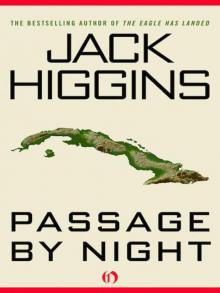 Passage by Night (v5)
Passage by Night (v5)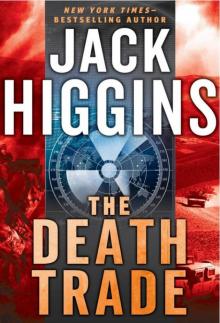 The Death Trade sd-20
The Death Trade sd-20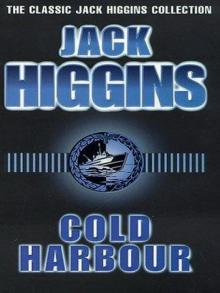 Cold Harbour
Cold Harbour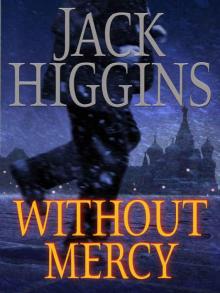 Without Mercy
Without Mercy Solo (Aka the Cretan Lover)(1980)
Solo (Aka the Cretan Lover)(1980) First Strike
First Strike Confessional - Devlin 03 (v5)
Confessional - Devlin 03 (v5) The Midnight Bell
The Midnight Bell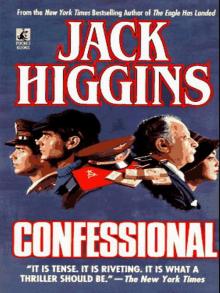 Confessional
Confessional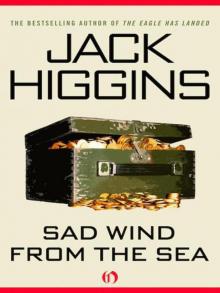 Sad Wind from the Sea (v5)
Sad Wind from the Sea (v5) In The Hour Before Midnight aka The Sicilian Heritage
In The Hour Before Midnight aka The Sicilian Heritage Wrath of the Lion
Wrath of the Lion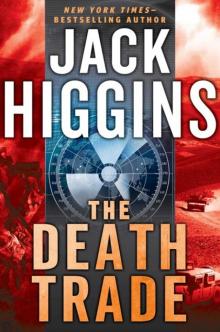 SDillon 20 - The Death Trade
SDillon 20 - The Death Trade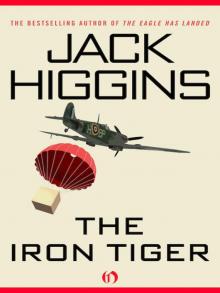 the Iron Tiger (1974)
the Iron Tiger (1974)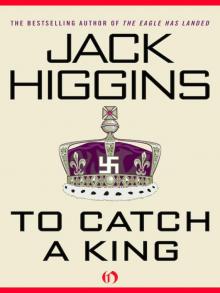 To Catch a King
To Catch a King Bloody Passage (1999)
Bloody Passage (1999) Wrath of the Lion sd-8
Wrath of the Lion sd-8 Sharp Shot
Sharp Shot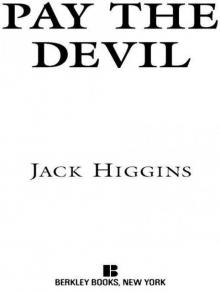 Pay the Devil (v5)
Pay the Devil (v5) A Devil Is Waiting
A Devil Is Waiting Dark Side of the Street - Simon Vaughn 01 (v5)
Dark Side of the Street - Simon Vaughn 01 (v5)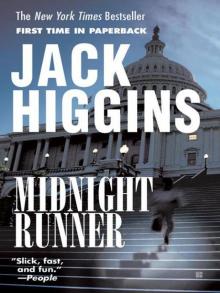 Midnight Runner - Sean Dillon 10
Midnight Runner - Sean Dillon 10 Wrath of God
Wrath of God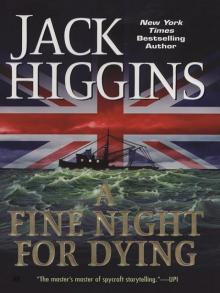 A Fine Night for Dying
A Fine Night for Dying Hell Is Too Crowded v5)
Hell Is Too Crowded v5)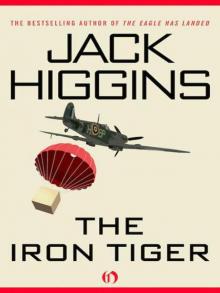 the Iron Tiger (v5)
the Iron Tiger (v5) Dark Side of the Street pc-5
Dark Side of the Street pc-5 Hell Is Always Today
Hell Is Always Today Eagle Has Landed
Eagle Has Landed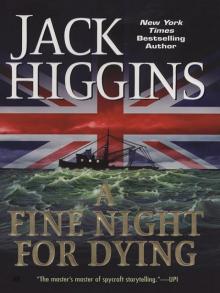 A Fine Night for Dying pc-6
A Fine Night for Dying pc-6 the Last Place God Made (v5)
the Last Place God Made (v5) the Valhalla Exchange (1976)
the Valhalla Exchange (1976) The Eagle Has Flown
The Eagle Has Flown Sure Fire
Sure Fire Pay the Devil (1999)
Pay the Devil (1999) Memoirs of a Dance Hall Romeo
Memoirs of a Dance Hall Romeo![a Prayer for the Dying (1974)[1] Read online](http://i1.bookreadfree.com/i1/04/02/a_prayer_for_the_dying_19741_preview.jpg) a Prayer for the Dying (1974)[1]
a Prayer for the Dying (1974)[1] Comes the Dark Stranger
Comes the Dark Stranger Dark Side Of the Island (v5)
Dark Side Of the Island (v5) The White House Connection sd-7
The White House Connection sd-7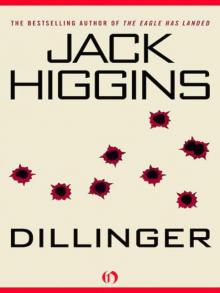 Dillinger (v5)
Dillinger (v5) Eye of the Storm
Eye of the Storm Eye Of The Storm aka Midnight Man
Eye Of The Storm aka Midnight Man A Darker Place
A Darker Place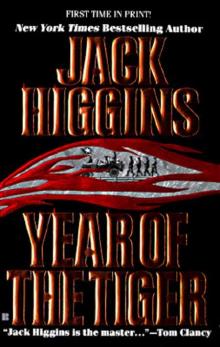 Year Of The Tiger
Year Of The Tiger Death Run
Death Run the Savage Day - Simon Vaughn 02 (v5)
the Savage Day - Simon Vaughn 02 (v5) Bloody Passage (v5)
Bloody Passage (v5) The Bormann Testament
The Bormann Testament On dangerous ground sd-3
On dangerous ground sd-3 Dark Justice
Dark Justice Sheba
Sheba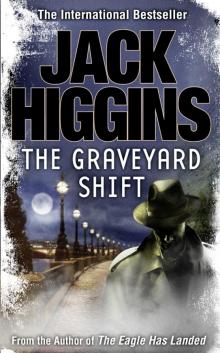 The Graveyard Shift
The Graveyard Shift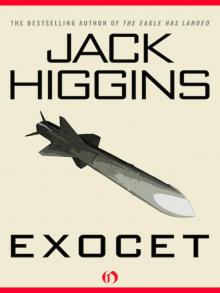 Exocet (1983)
Exocet (1983) The Wolf at the Door
The Wolf at the Door The wolf at the door sd-17
The wolf at the door sd-17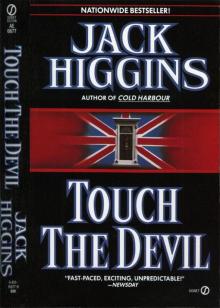 Touch The Devil
Touch The Devil The President’s Daughter
The President’s Daughter A Prayer for the Dying (v5)
A Prayer for the Dying (v5)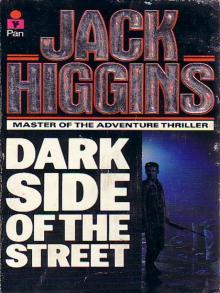 Dark Side Of The Street
Dark Side Of The Street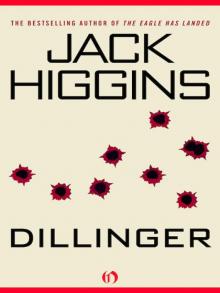 Dillinger (1983)
Dillinger (1983) Midnight Never Comes pc-4
Midnight Never Comes pc-4 Hell Is Too Crowded (1991)
Hell Is Too Crowded (1991)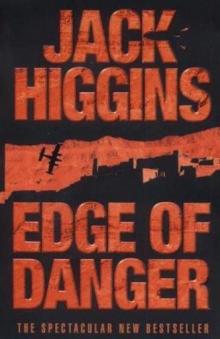 Edge of Danger sd-9
Edge of Danger sd-9 The Thousand Faces of Night (v5)
The Thousand Faces of Night (v5)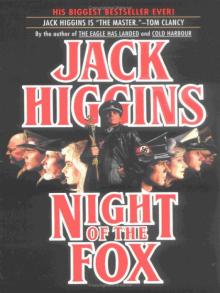 Night Of The Fox
Night Of The Fox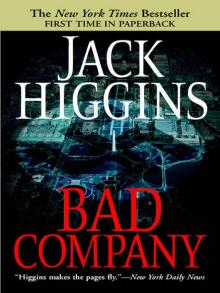 Bad Company
Bad Company The Killing Ground
The Killing Ground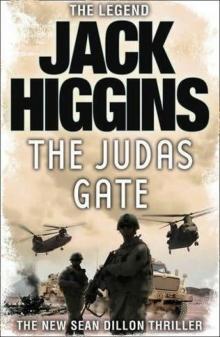 The Judas gate sd-18
The Judas gate sd-18 The Thousand Faces of Night (1961)
The Thousand Faces of Night (1961) Solo (Aka the Cretan Lover) (v5)
Solo (Aka the Cretan Lover) (v5)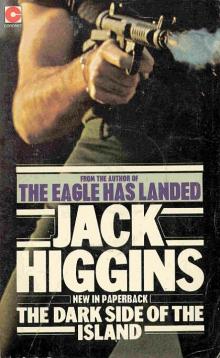 The Dark Side Of The Island
The Dark Side Of The Island A Devil is vaiting sd-19
A Devil is vaiting sd-19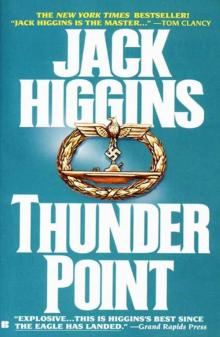 Thunder Point
Thunder Point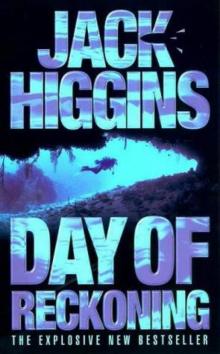 Day of Reckoning sd-8
Day of Reckoning sd-8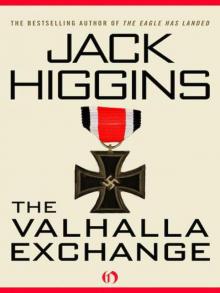 the Valhalla Exchange (v5)
the Valhalla Exchange (v5) In the Hour Before Midnight
In the Hour Before Midnight The Bormann Testament (The Testament of Caspar Schultz)
The Bormann Testament (The Testament of Caspar Schultz) The Judas Gate
The Judas Gate Luciano's Luck
Luciano's Luck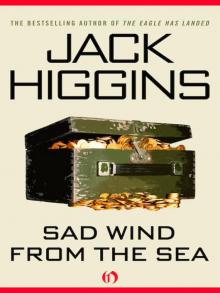 Sad Wind from the Sea (1959)
Sad Wind from the Sea (1959)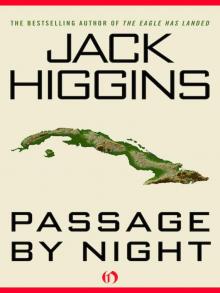 Passage by Night (1987)
Passage by Night (1987)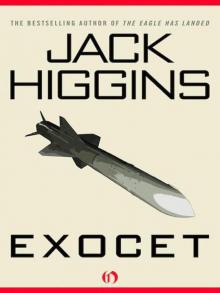 Exocet (v5)
Exocet (v5)